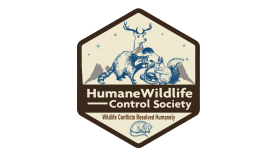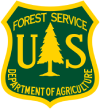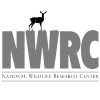Humane Wildlife Control in Naples, FL
The Humane Wildlife Control Society recommends non-invasive solutions to resolve human-wildlife conflicts. This includes:
Determining if the issue needs to be addressed at all
Opting for preventative measures first
Opting for wildlife exclusion as opposed to trapping
If trapping is the only way to solve the problem do so humanely
The Humane Wildlife Control Society screens candidates prior to recommendation. Our process requires any company we recommend to meet the following criteria:
Is properly licensed in Florida for wildlife control
Carries appropriate business licenses and insurance
Complies with all Florida laws and regulations for wildlife control
Adheres to the humane principles listed above.
In Naples, Florida we recommend Humane Wildlife Removal Naples for professional wildlife control services. This is a private company that charges for their services.
Contact Information:
Wildlife Removal Naples
239-829-5372
If you have any wildlife issues that can be handled by the state government agency for free, the Florida Wildlife Commission can help.
State Contact Information: 888-404-3922
The State Department of Agriculture may also be able to address your wildlife problem for no charge.
USDA Contact Information: (800) 435-7352
Best Practices for Humane Wildlife Control in Naples, Florida I. Prevention: The Foundation of Humane Wildlife Control Secure Food Sources: Exclusion Techniques: Florida Fish and Wildlife Conservation Commission (FWC) Regulations: Contact the FWC: Promote Responsible Coexistence: Prioritize non-lethal methods.
The City of Naples is committed to managing human-wildlife interactions responsibly, prioritizing public safety and animal welfare. The following best practices are recommended for residents and businesses:
Use animal-resistant garbage containers and ensure lids are tightly closed.
Avoid leaving pet food outdoors, especially overnight.
Clean up fallen fruit and birdseed promptly.
Maintain compost piles properly, ensuring they are not accessible to wildlife.
Eliminate Shelter and Access Points:
Seal cracks and openings in foundations, walls, and roofs.
Trim trees and shrubs away from buildings to prevent access.
Install chimney caps and screen vents.
Clear debris and clutter from yards, which can provide shelter for wildlife.
Landscape Modifications:
Avoid planting vegetation that attracts wildlife, such as berry-producing shrubs near structures.
Maintain a clear perimeter around buildings.
Use fencing to deter wildlife from entering yards or gardens.
Avoid Feeding Wildlife:
Intentionally feeding wildlife can lead to habituation and increased conflicts.
It can also contribute to the spread of disease.
II. Humane Exclusion and Deterrence:
Use one-way doors or exclusion funnels to allow animals to exit structures without re-entry.
Install barriers or fencing to prevent access to specific areas.
Consult with licensed wildlife professionals for complex exclusion projects.
Deterrents:
Use motion-activated sprinklers or lights to deter wildlife.
Employ ultrasonic devices or other humane deterrents as appropriate.
Apply repellents specifically designed for the target species, following product instructions.
III. Responsible Relocation (When Necessary):
Relocation must comply with FWC regulations.
Relocation should only be considered when other humane methods are not feasible and when the animal poses a significant threat.
Contact FWC for guidance on permitted relocation practices.
Professional Assistance:
Relocation should generally be conducted by licensed wildlife professionals to ensure the animal’s safety and well-being.
Improper relocation can be detrimental to the animal and disrupt local ecosystems.
IV. Addressing Specific Wildlife Concerns:
For concerns involving protected species, such as panthers or bears.
For guidance on managing nuisance wildlife.
Contact Naples Police Department or Collier County Animal Services:
For aggressive or dangerous wildlife posing an immediate threat to public safety.
For domestic animal issues.
Consult Licensed Wildlife Professionals:
For effective and humane solutions to wildlife conflicts.
V. Public Education and Awareness:
Educate residents about local wildlife species and their behaviors.
Provide information on preventative measures and humane control techniques.
Disseminate Resources:
Make information on wildlife management available on the city’s website and through community outreach programs.
Key Principles:
Adhere to FWC regulations.
Protect public safety.
Promote responsible interactions with wildlife.







